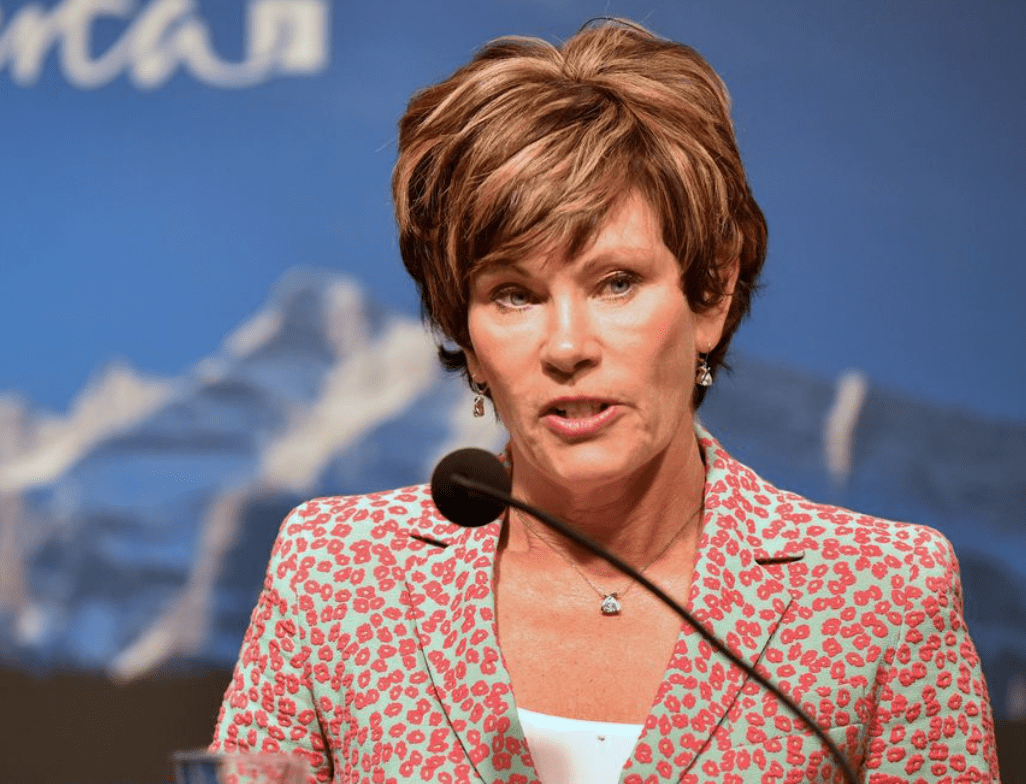Politicians should get some simple advice as they start their political careers.
Don't try to use a tragedy to further your political agenda.
Even if you deeply believe your cause is just, it will always look tacky.
Last Friday Alberta Energy Minister Sonya Savage told a podcaster that energy pipeline construction should be accelerated because Covid-19 health provisions forbid mass protests.
"Now is a great time to be building a pipeline because you can't have protests of more than 15 people. Let's get it built" Savage told the host of a podcast of the Canadian Association of Oilwell Drilling Contractors.
The story was picked up for a wider audience thanks to a Canadian Press story. A tweet from climate activist Greta Thunberg took it into the international media.
"Alberta minister says it's a 'great time' to build a pipeline because Covid-19 restrictions limit protests against them. Well, at least we are seeing some honesty for once… Unfortunately this (is) how large parts of the world are run," Thunberg tweeted.
A lot of people of every political stripe in Alberta believe increased pipeline capacity would be a great thing for the province. Even the previous NDP government pushed hard for the TMX line to Vancouver and decried the pipeline opponents trying to stymie its construction.
The federal Liberals eventually bought the pipeline and Prime Minister Justin Trudeau is not shy about defending it.
Savage could have soft-balled the whole issue with a similar but benign statement that pipeline acceleration could alleviate the unemployment crisis being magnified in Alberta by the pandemic.
Instead Savage's remarks cross the boundary into bad political optics. Saying the upside to a pandemic is the ability to shut-down those pesky environmental and First Nations activists is poor taste.
More nefarious is the shut down of environmental reporting and testing in the energy sector because of Covid health concerns.
While the shut down of collection of oil pollution data is technically a decision of the Alberta energy regulator, it follows April cabinet decisions to suspend the need to report a wide range of environmental data in light of the public health emergency.
The energy regulator decided to shut down oil industry monitoring because the industry asked it to.
"The Alberta Energy Regulator has received legitimate concerns and information demonstrating that the operators will not be able to meet certain monitoring requirements … while complying with the COVID-19 orders and guidelines," said one of the decisions.
Why testing and monitoring the environment around oil sand and other oil and gas projects is problematic in terms of a pandemic is not well explained or detailed.
The "legitimate concerns" apparently didn't come from provincial health officials. Medical Officer of Health Deena Hinshaw, when asked about the monitoring suspension said she had no background on the regulator's decisions.
"We made requests to the (regulator) to postpone some monitoring in order to protect workers and the public from COVID-19 and specifically to ensure public health guidance is respected," a Syncrude spokesman told one media outlet.
And yet Alberta construction sites, including road, building and pipeline construction, are all humming along right through the current crisis. Apparently protecting the environment isn't a priority for the industry, despite the many protestations made by the province about its commitment to responsible oil production.
Alberta NDP Leader is calling on Premier Jason Kenney to countermand the AER decision.
"The idea that we can force workers to work elbow-to-elbow at packing plants, have servers walk through restaurants with 50 people in them, but somehow it's unsafe for environmental monitoring experts to go out and test water and air? It's the most ridiculous assertion I've ever heard," Notley argued.
A reversal of the AER decision would help re-polish some of the government's arguments that its energy sector is in some way "ethical" and responsible. And it might take some of the air out of the energy minister's gaffe.
Photo Credit: Edmonton Journal






